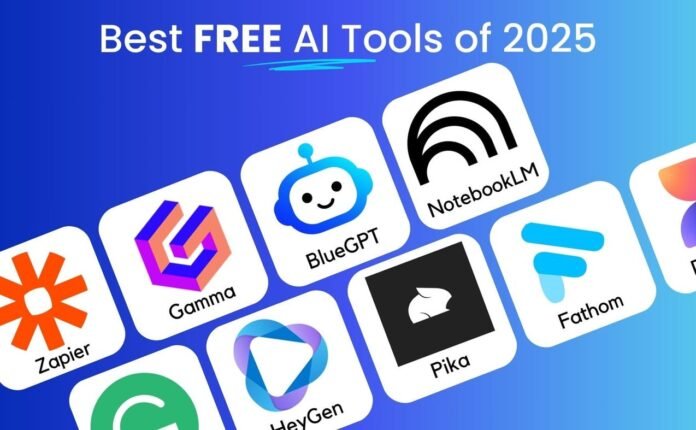Artificial Intelligence (AI) is not just a buzzword anymore; it is changing how industries and economies operate, as well as impacting our lives. While many large tech companies (think Google, Microsoft and OpenAI) have captured the majority of the press and publicity on AI, many small, nimble, and innovative startups are quickly emerging and disrupting legacy systems and thinking creatively about old problems in order to create exciting new realities. Now that we are starting to get into 2025, we will shine light on a few AI startups that stand out this year.
Let’s take a bigger look at some of the most exciting AI startups this year.
1. Anthropic – Safe AI Systems at Scale
Based by former OpenAI researchers, Anthropic is focused on building reliable, steerable, and interpretable AI systems. Their AI assistant, Claude, has become a favorite strapped-to-a-lease alternative to other LLMs, and their emphasis on “constitutional AI” as a way to align AI behavior according to a set of guiding principles, is clear in their mission to keep it safe first. By 2025, Anthropic continues to grow and be a player in innovating with Claude 3, with new reasoning abilities and contextual clues. With their focus on honest and responsible development, Anthropic has positioned itself strongly in the race for safe AGI.
2. Runway ML – Revolutionizing Video Content Creation
Runway ML accepts the generative AI functionality paired with creative tools and allows anyone—filmmakers or marketers—to produce professional video content with little effort. Their Gen-2 model now supports text-to-video generation, background replacement, and real-time video editing, with the use of prompts.
This year, Runway’s bindings to substantial creative platforms and usage in indie films and advertising campaigns established it as a leader in democratized media production. It is taking what once took hours to produce into minutes—and it’s visually appealing.
3. Hippocratic AI – A Safer AI for Healthcare
AI is extremely complicated in the healthcare world: the impact can be magnified, and mistakes can be fatal. In an intentional way, Hippocratic AI confronts the stakes of AI by creating large language models focused on health-care scenarios: patient triage, care coordination, manufacturing administrative tasks, and similar use cases. Importantly, ‘Hippocratic’ is the title’s reference, just as Hippocrates is the Greek physician whose “first, do no harm” principal is strongly reflected in their development of AI.
While traditional chatbots tout applications such as customer service or general content service, models developed by Hippocratic are trained with robust supervision from medical engaged stakeholders across a continuum of care provision; safety, compliance and empathy are the core tenets of their model. As of May 2023, the startup is piloting this technology through interactions with major hospital systems across North America and Europe with promise to limit both burnout for health care humans and accelerate patient engagement.
4. Mistral AI – Speed and Performance Under Open-Weight Models
Mistral is a European-based AI startup that is creating much buzz thanks to its open-weight LLMs, that offer a high performance tool to accelerate and learn to compete in the closed-source models. Mistral model to provide open source tools and development work through transparency for the community, especially researchers, developers and businesses.
In 2025, they released the Mistral Mixtral 8x22B, a mixture-of-experts model, used for text generation and designed to rival the highest closed-source models are designed for multilingual understanding, reasoning, or summarization. It is a popular choice among Startups and other academic labs as it allows them to provide performance whilst remaining open.
5. Perplexity AI – A New Horizon for AI-Powered Search
Sick of traditional search engines that deliver a page of links? Perplexity AI takes a fundamentally different approach. Instead of displaying a static webpages, it creates dynamic, AI-generated responses that are sourced in real time. It also uses a conversational interface that allows users to explore relevant topics with an ever-deepening ability to refine their questions as they go.
By 2025, Perplexity has expanded from consumers to enterprise-level search for internal knowledge bases, legal research, technical documentation, and more. Its combination of accuracy, transparency, and interactivity is likely reshaping interaction with information.
6. Imbue – Teaching AI How to Reason
Imbue (previously Generally Intelligent) is aiming to solve what is probably one of the toughest problems in AI, specifically the teaching of machines to reason and think abstractly. Instead of optimizing for chat capabilities or text generation, Imbue is training foundation models that can handle harder reasoning problems that require long-term generalization.
The characteristics of its agent-based models are being evaluated in strategy games, simulated environments, and planning in robotics—so you can think of them as robotic avatars with significant imaginative capacity. And with its recent $200M funding, Imbue is likely to make significantly larger strides toward actually intelligent systems this year!
7. Pika Labs – The TikTok of AI Video
Pika Labs is another generative video startup gaining traction. With an interface easy enough to be a social media app, and having the creative richness of an actual professional studio, Pika helps user generate video clips with the only inputs being text and image prompts.
Its community driven model (users remix, iterate, and share) mimics the viral culture of TikTok which has gained popularity with a Gen Z user base. In 2025, Pika introduced a monetization program for creators who had originally created AI-generated content, generating opportunities for new income streams and redefining content ownership.
8. Hebbia – AI That Thinks Like an Analyst
Hebbia is aiming at high-stakes knowledge work, like in investment banking, law, and consulting. Their platform deploys advanced AI agents to analyze, synthesize, and reason over raw data, or huge datasets of for example legal documents or financial filings.
In 2025 brands like Goldman Sachs and Herbert Smith Freehills are using Hebbia’s AI copilots to simplify their due diligence, compliance, and competitive analysis work. If you combine search, summarization, and logic-based inference then Hebbia is notably creating a new level of decision intelligence platform.
Why These Startups Are Important
Here’s the reason these startups are special not just for their tech innovations, but also clarity of purpose. Whether they’re narrowing down to:
- safeguarding using AI in medicine
- enabling humans to be more creative
- building reasoning skills as the basis for machine intelligence.
Each startup is differentiating and addressing some real-world need that feels urgent.
They’re also reengineering how to “scale.” Rather than chase any user, many of these businesses are driven by performance, alignment, ethics, and impact. This shift illustrates the maturation of the AI ecosystem, where quality is view as at level with speed and responsibility.
Conclusion
2025 is shaping up to be a watershed year for AI startups. With increasing computing power and advancements in foundational models, these startups have clearly identified opportunity and are not merely riding the wave, they are leading it. By taking calculated risks involving safety, openness, creativity, and reasoning, these entrepreneurs are designing the AI landscape of the future, re-directing society along the way.
If you’re monitoring the AI space, watch these names closely. They are not really “startups” anymore, they have transitioned into the next generation of tech giants.




Get your hands on a free bonus today! Sign up now! – https://krakenpartners.net/ru/track/1174